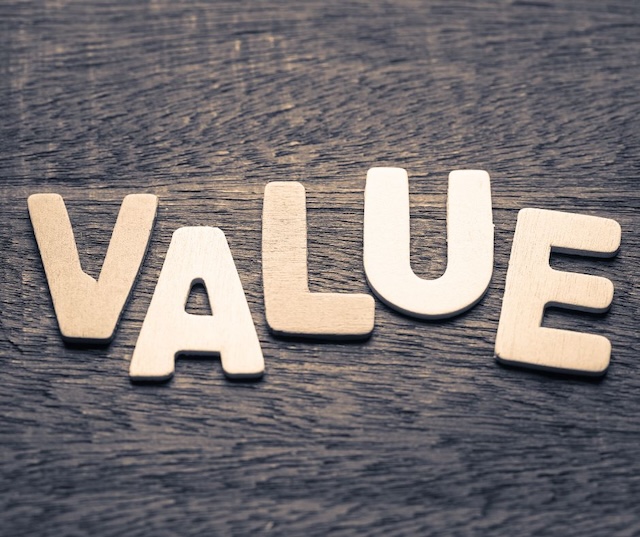The Holiday Season is here and there are lots of festive events going on in and around Montgomery to help you celebrate! Keep this list of Holiday Happenings handy and enjoy all that this great city has to offer during this special time of year.
_______________________________

CHARLES DICKENS’ A CHRISTMAS CAROL
November 21, 2024 – December 29, 2024
Alabama Shakespeare Festival
1 Festival Drive
Montgomery, AL 36117
ASF’s full production returns with miserly Ebenezer Scrooge’s overnight voyage of epic proportions begins. Journey with Scrooge as he learns from his ghosts (and Bob, Tiny Tim, and the Cratchits) a heartwarming lesson in forgiveness and the change we can make around us.
Purchase tickets HERE
_______________________________

HOME ALONE IN CONCERT
November 22, 2024
Troy University’s Davis Theatre for the Performing Arts
251 Montgomery Street
Montgomery, AL 36104
A true holiday favorite, this beloved comedy classic features renowned composer John Williams' charming and delightful score performed live to picture by the Montgomery Symphony Orchestra. Macaulay Culkin stars as Kevin McCallister, an 8-year-old boy who's accidentally left behind when his family leaves for Christmas vacation, and who must defend his home against two bungling thieves. Hilarious and heart-warming, Home Alone is holiday fun for the entire family!
Purchase Tickets HERE
_______________________________

PHOTOS WITH SANTA
November 25 & 26, 2024
Cramton Bowl
1022 Madison Avenue
Montgomery, AL 36104
SANTA WILL APPEAR AT MONTGOMERY’S CRAMTON BOWL FOR FREE PHOTOS!
Taking pictures with Santa at Christmas is a time-honored tradition for many families. That’s why this year, The Vance Law Firm, WSFA 12 News, and the City of Montgomery are making the holiday tradition FREE!
Monday, Nov. 25 and Tuesday, Nov. 26, from 4 p.m. - 8 p.m., photographers and Mr. Claus himself will be at the Cramton Bowl Multiplex.
It’s open to the first 2,000 people who register. Up to six people are allowed per photo.
Sign Up HERE
_______________________________

THE ANNUAL TURKEY DAY CLASSIC PARADE
November 28, 2024
The Annual Turkey Day Classic Parade will kick off at 8 a.m. on Thanksgiving Day, Thursday, Nov. 28, on Dexter Ave., in downtown Montgomery.
More than 160 campus organizations, businesses and churches traditionally participate in the annual Turkey Day Parade, and this year's Parade is expected to be bigger and better.
For more information click HERE
_______________________________

WHOBILATION CELEBRATION BRUNCH
November 30, 2024
The Bubbly Hen
7915 Vaughn Road
Montgomery, AL 36117
Step into a magical morning straight out of Whoville, where the spirit of cheer and joy fills every corner. Come have brunch with some of Whoville's most beloved characters, spreading laughter and holiday excitement.
Early bird prices are $25 per child and include a meal. Tickets are limited.
Join us for a morning of fun, food, and Whoville magic.
Every child must have a ticket. Only two adults are allowed per family.
Purchase Tickets HERE
_______________________________

CHRISTMAS LIGHTS FESTIVAL AT THE MONTGOMERY ZOO
December 6 through December 31, 2024
Montgomery Zoo
2301 Coliseum Boulevard
Montgomery, AL 36110
See Montgomery Zoo transformed into a Winter Wonderland displaying thousands of sparkling and twinkling lights and festive decorations at Christmas Lights Festival. Take a leisurely stroll or enjoy a brisk train ride. Safely visit Santa and the Christmas Tree Village at the Mann Museum, enjoy the live entertainment at the Overlook Cafe, and no winter night would be complete without some warming hot chocolate and fresh baked cookies from the Overlook Cafe. Make plans to swing by the Zoo and Museum Gift Shops for last minute gift purchases, souvenirs, and to participate in the Zoo Animal Angel Tree, helping conservation efforts at the Zoo and around the world.
For more information click HERE
_______________________________

ALABAMA GOVERNOR’S MANSION CANDLELIGHT TOURS
December 9 & December 16, 2024
1142 Perry Street
Montgomery, AL 36104
Holiday Candlelight Tour Dates 2024
Holiday Candlelight Tours will occur on Monday, December 9, from 5:30 p.m. to 7:30 p.m. and Monday, December 16, from 2:00 p.m. to 3:30 p.m. or 5:30 p.m. to 7:30 p.m.
This is a FREE self-guided tour that requires a ticket to enter. Beginning October 28, 2024, tickets will be available at the Governor’s Mansion Gift Shop (30 Finley Avenue Montgomery, AL 36104) and the Sweet Home Alabama gift shop (401 Adams Avenue Montgomery, AL 36104). For questions regarding the Holiday Candlelight Tours, please contact us at: [email protected] or call 334-425-2818.
_______________________________

A CELTIC CHRISTMAS BY A TASTE OF IRELAND
December 10, 2024
Troy University’s Davis Theatre for the Performing Arts
251 Montgomery Street
Montgomery, AL 36104
Prepare to be enchanted with some of the world’s finest Irish dancers and musicians bringing the spirit of Christmas to life, in a show that will make you laugh, cry, and sing into the night. After captivating audiences across New York, A Celtic Christmas by A Taste of Ireland has entertained thousands around the globe and now returns to the U.S. this holiday season. Experience the magic as world-class performers blend melodic folk mashups, acapella tap battles, and heartwarming storytelling in one truly unforgettable performance. Featuring former World Irish dance champions and stars from Lord of the Dance and Riverdance, A Celtic Christmas delivers a holiday spectacular packed with Irish wit, traditional tunes and heartfelt ballads, alongside all your favorite carols. The show’s exciting mix of electrifying rhythms and extraordinary talent promises an evening brimming with Irish charm and enthralling entertainment, all in one powerhouse event.
Purchase tickets HERE
_______________________________

CAPITAL CITY CHRISTMAS PARADE
December 13, 2024 – 6:15 PM
29 Dexter Avenue
Montgomery, AL 36104
Join us downtown on Dec. 13th for the annual Christmas Parade on Dexter Avenue!
For more information click HERE
_______________________________
If you are in the market to buy or sell a home (or both), let me, Sandra Nickel, and my Hat Team of Professionals assist you with all your real estate needs! Call us today at 334-834-1500 and check out https://www.homesforsaleinmontgomeryalabama.com for more information!
Photo credits: experiencemontgomeryal.org









































